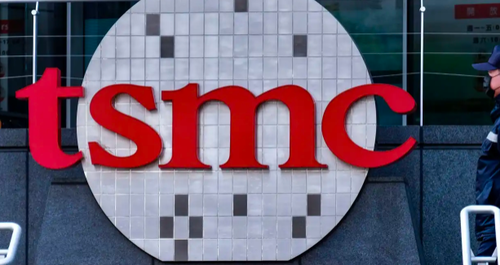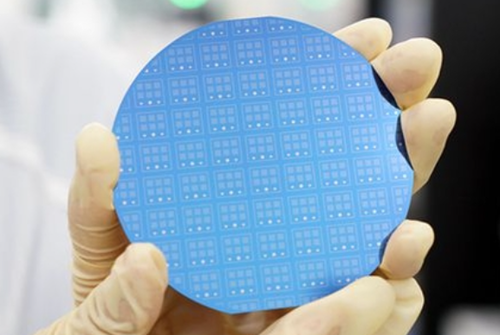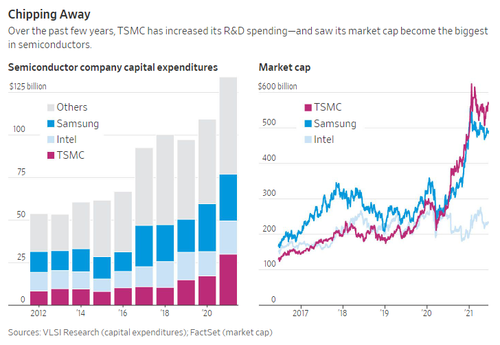Taiwan Semiconductor Sets Sights Expansion Into Japan After Record Q2 Sales
It isn't just the U.S. where Taiwan Semiconductor is looking to expand its footprint. Not only has TSMC made headlines for proposing to expand production into the United States, as we have documented numerous times, but now it is making headlines for how it has become the center of the semiconductor world - and how that can leave the world vulnerable.
Now, the semi giant, in the midst of a global semi shortage, is looking to deploy new infrastructure in Japan for the first time in the company's history, according to Nikkei. The plans are not included in TSMC's already-disclosed three year, $100 billion capex budget for expansion.
The announcement comes after the company posted record quarterly sales and forecasted higher revenue for the current quarter, according to Reuters. Its Q2 profit rose 11% and revenue was up 28% in U.S. dollar terms. The company announced its Q3 revenue would be up 21-23%.
TSMC Chief Executive Officer C.C. Wei said that the company was in the midst of researching whether or not a plant in Japan would make sense for the company. They are reported to be looking to build in the "western prefecture of Kumamoto to address growing demand from Sony".
TSMC Chairman Mark Liu said: "We are in the due diligence process now to have a specialty technology fab in Japan. It is still early to disclose the decision, because it will be based on our customer needs, operating efficiency evaluation and cost economics."
Expansion into the U.S. and China also remain on the table for the company. Liu continued: "As the need for semiconductor infrastructure security has increased in recent years, we are expanding our global manufacturing footprint to sustain and enhance our competitive advantages, and to better serve our customers in the new geopolitical environment."
He concluded: "We will continue to compress our schedule [for the project] as much as we can."
Recall, we noted in late June that TSMC was going to be hiking prices by up to 20% next year.
Earlier this year we reported that semi prices were expected to rise through all of 2021, but recent reports have suggested that production was picking up again. In fact, car chip vendors are now able to "ramp up output" thanks to more foundry house support coming online, Digitimes Asia reported late last month.
But that isn't stopping TSMC from hiking prices, as was telegraphed earlier this year. For example, back in April, suppliers like Japan’s top silicone producer, Shin-Etsu Chemical Co. Ltd. marked up prices between 10% and 20%, according to Caixin, who reported that growing input costs and supply disruptions could be tide that continues to push up prices. Shin-Etsu blamed their price hikes on the rising cost of silicon metal, which they said was a result of demand out of China
Names like Semiconductor Manufacturing International Corp. (SMIC), United Microelectronics Corp., and Powerchip Semiconductor Manufacturing Corp. had all announced intentions to raise prices in similar fashion. Taiwan Semiconductor Manufacturing Co. Ltd. has also said prices are coming in the form of suspending wafer price reductions beginning December 31 this year.
One Jiangsu diode manufacturer said it's suppliers had raised prices five times since the second half of 2020. The hikes represented a total markup of between 30% and 40%, including a new 10% hike that came into effect last week. The same firm's inventory was at "half their normal level", Caixin reported.
One semiconductor salesman said: “The whole industry is scrambling for (chips), and it’s hard for us to make a purchase."
We called TSMC the "one chipmaker the entire world is depending on" in a piece we published in June that highlighted the world's reliance on their production.
TSMC's chips are in "billion of products", including iPhones, computers and cars, the Wall Street Journal writes in a new profile of the company. The company has slowly become the world's 11th most valuable company, with a market cap of about $550 billion. The company reported $17.6 billion in profits last year on revenues of about $45.5 billion. TSMC makes "around 92% of the world's most sophisticated chips," the report says.
This has led to the U.S., Europe and China looking to cut their reliance on chips out of the Taiwanese company. But that's a tough task given its contribution globally. The U.S., for example, only accounts for 12% of the world's chip manufacturing, down from 37% in 1990.
Analysts aren't confident of there being a more diversified semiconductor supply chain "anytime soon". They attribute this to TSMC's "hard driving culture" and "deep pockets". The industry has become so complex that once one producer falls behind, it becomes tough to catch up.
https://ift.tt/3eosfWb
from ZeroHedge News https://ift.tt/3eosfWb
via IFTTT




0 comments
Post a Comment